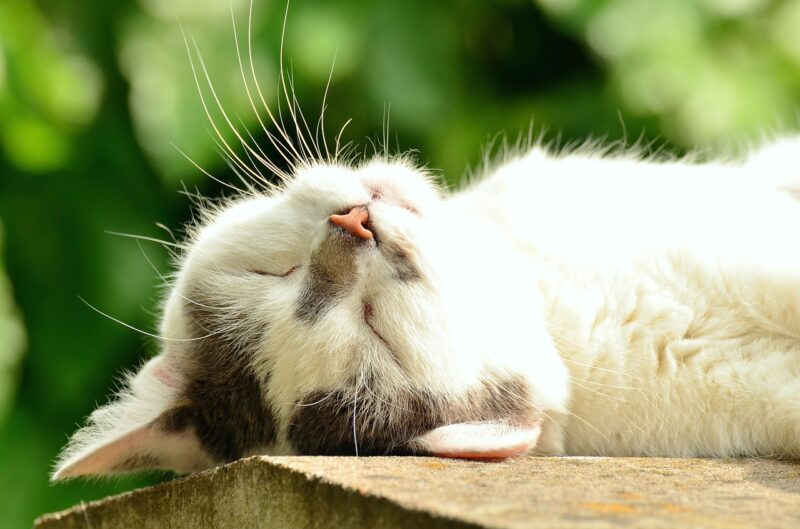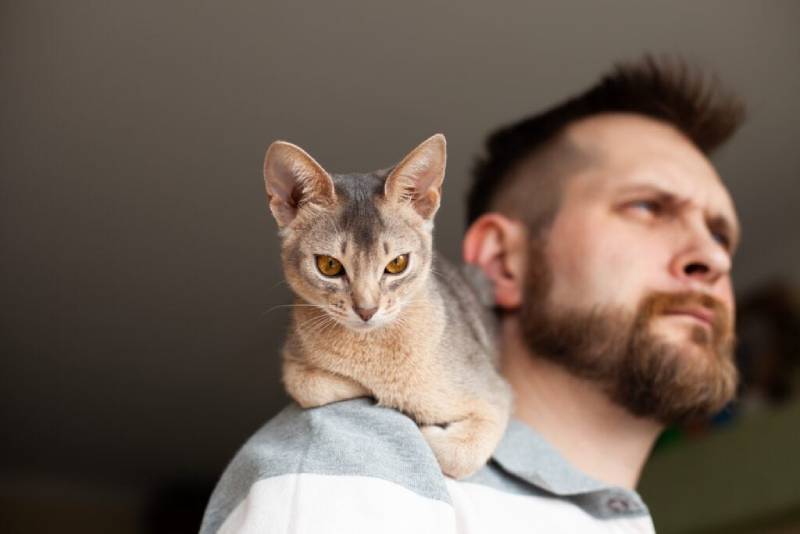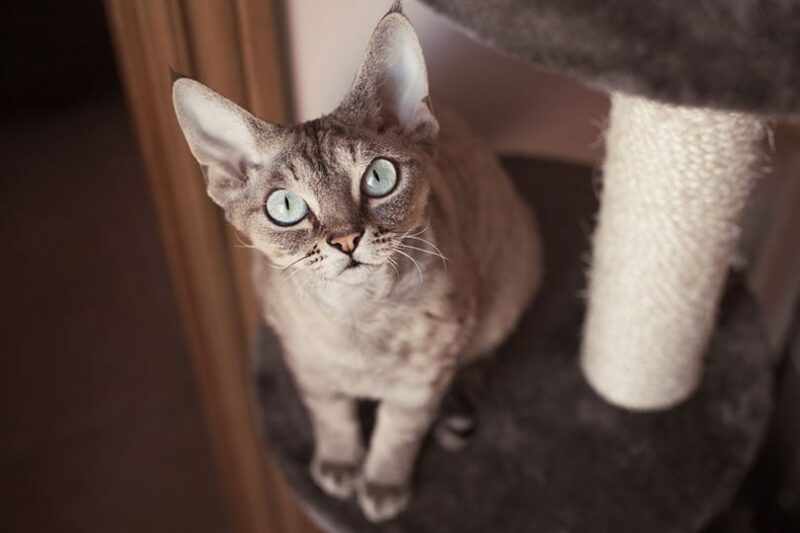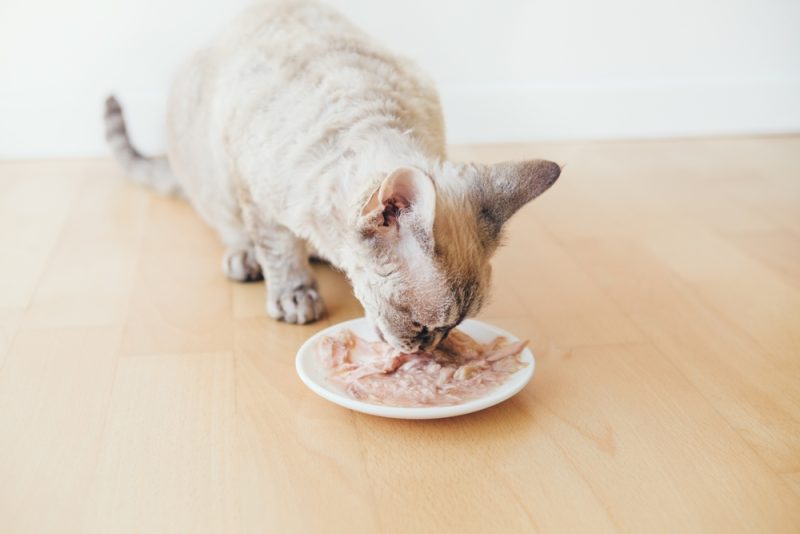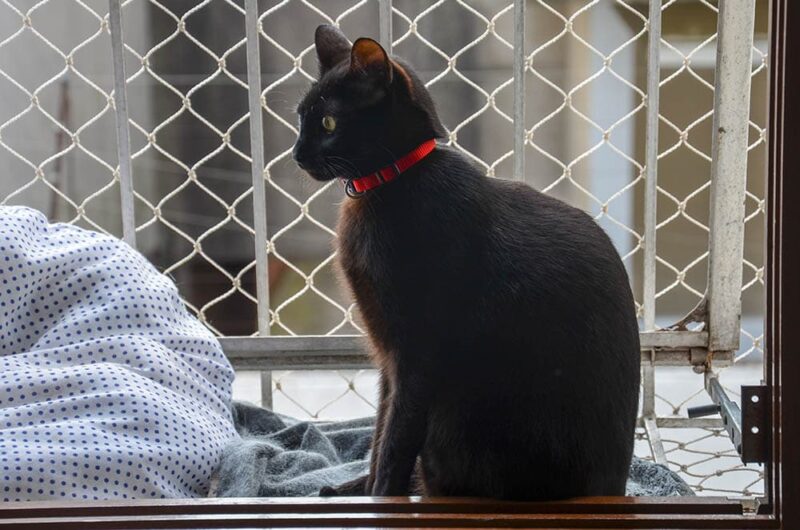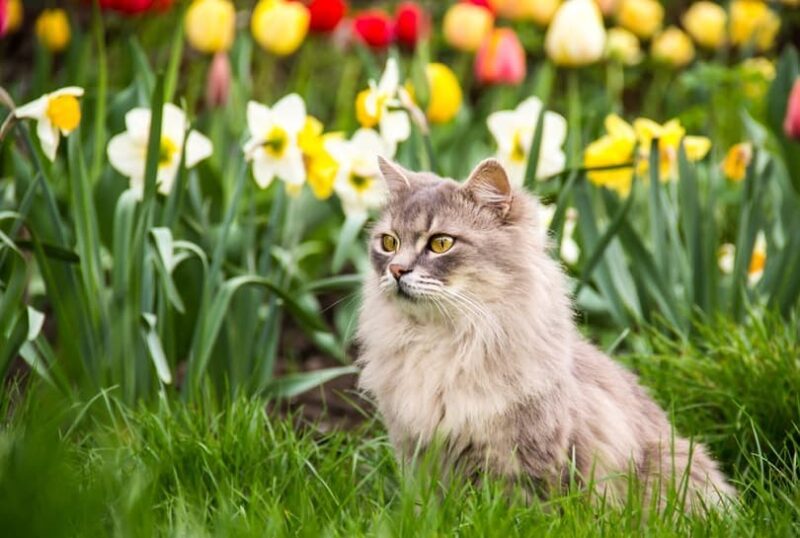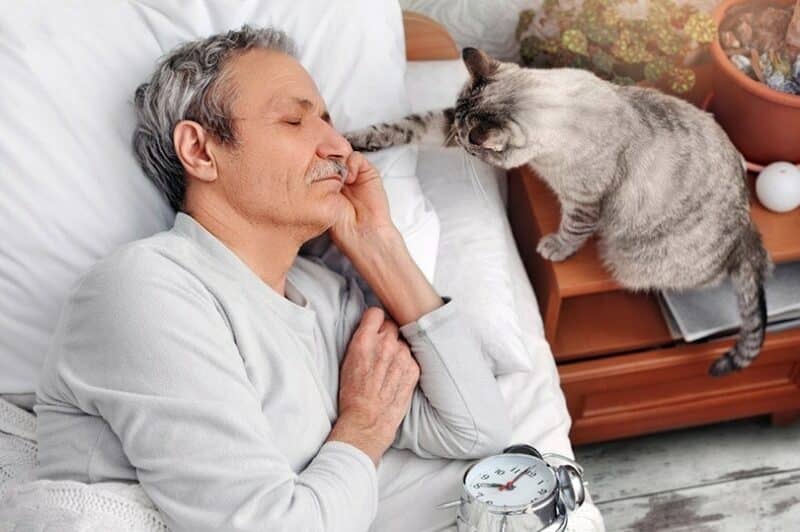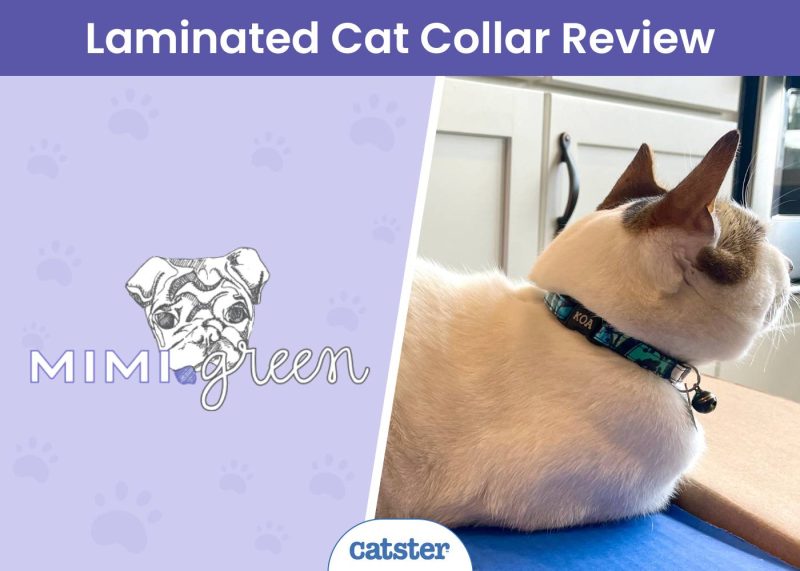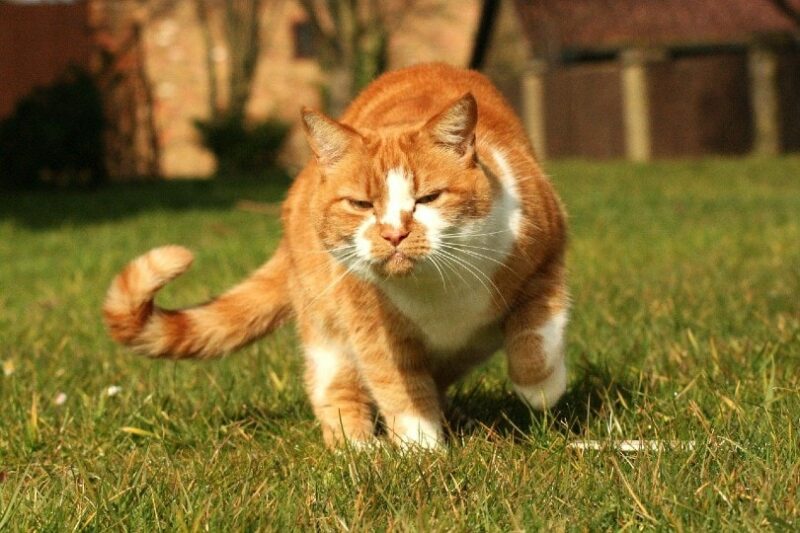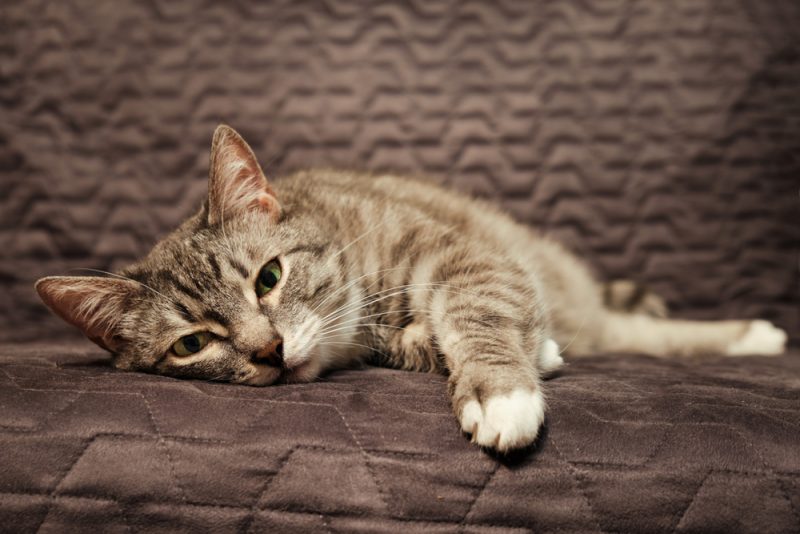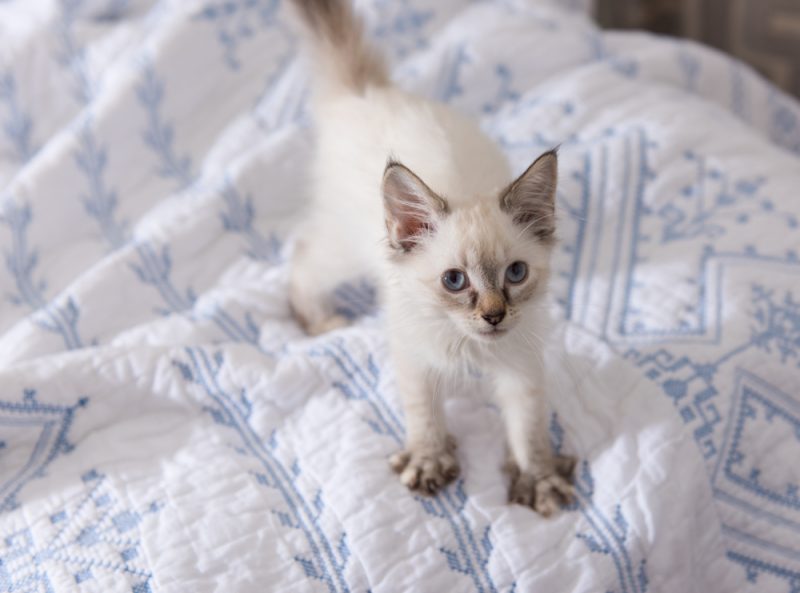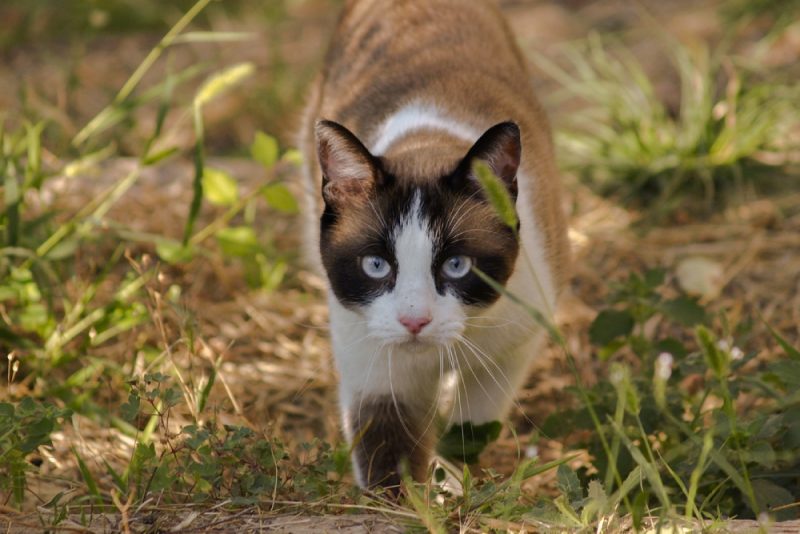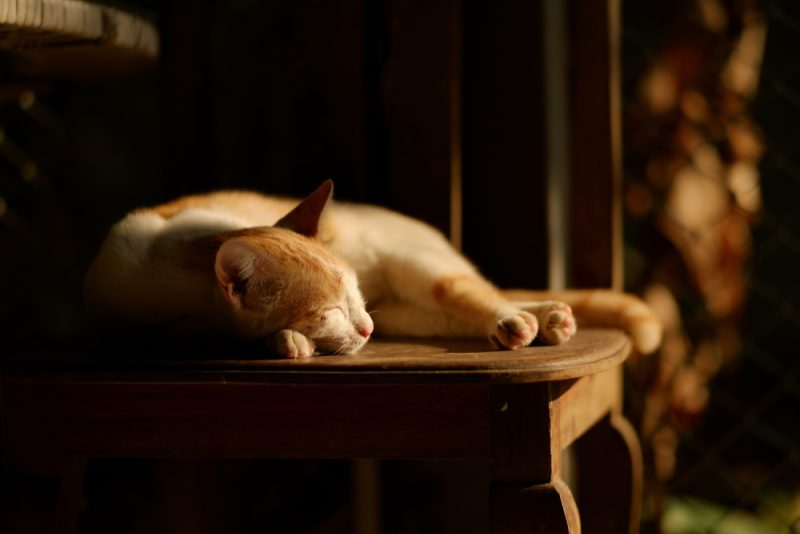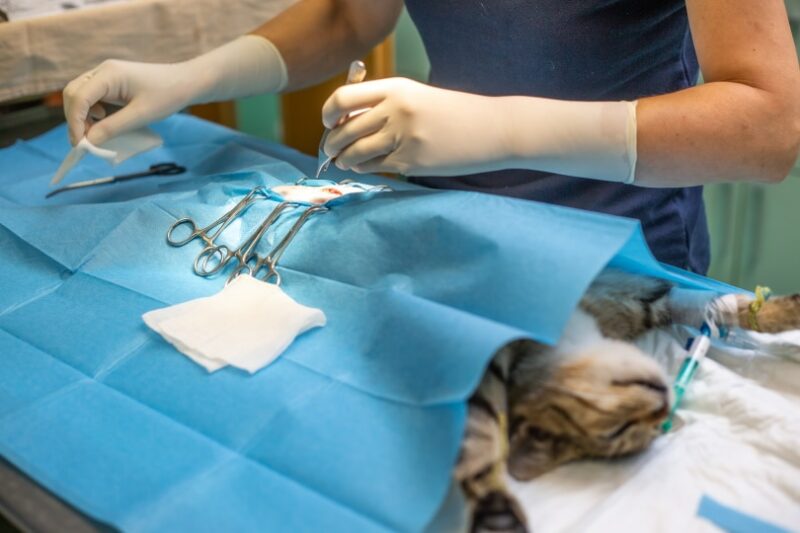Anyone with a feline friend knows that cats love to sleep! The proverb ‘cat nap’ says it all. As cute as it is when they choose your lap or bed to curl up on, it can be a little unsettling if your cat starts snoring, but there is nothing to be concerned about. However, you wonder what it means when a cat snores. When should I be worried if my cat snores? Read on to find out all you need to know about snoring in cats!

Do Cats Snore?
Just like us, cats have two stages of sleep. REM (Rapid Eye Movement) sleep is when you or your furry friend will dream. Non-REM sleep has three stages, one of which is deep sleep. This is when snoring tends to occur, as the soft tissues around the airways relax. To put it simply, snoring is the noise made by air moving past these relaxed tissues, causing them to vibrate.
Why Does My Cat Snore?
There are many reasons that your cat might snore. Some of them are harmless, whilst others require veterinary attention. So, what can cause a cat to snore?
- Brachycephalic (flat-faced) cats have a tendency to snore. This is because they have shortened and narrow passages in their nose and a long soft palate (the roof of their mouth goes too far back). This means there is less space for the air to move through when your cat breathes, especially when they are asleep and everything relaxes. The air vibrates as it moves through these narrower passages.
- Being overweight can increase the chances of your cat snoring. This is because there may be fat deposits around the airways, putting pressure on them.
- Sleeping position can cause snoring. If your cat only snores very occasionally, the cause may be as simple as they’ve gone to sleep in a funny position.
- Illnesses affecting the upper airways (the airways in the nose, mouth, and throat- not the lungs) can cause snoring. Viral infections such as cat flu can predispose to snoring, especially in cats that are affected long-term. Any infection of the upper airways can cause inflammation (swelling) of the passages of the nose and cause mucus (snot). Both of these can lead to snoring.
- Asthma. Yes, cats can be asthmatic, too! Feline asthma can cause the narrowing of the passages of the airways, so asthmatic cats can have a tendency to snore.
- Obstruction of the upper airways. Air pushing past an obstruction in the airways can cause a snoring noise, sometimes when a cat is awake, too. The blockage could be a foreign body, such as a blade of grass, or a mass, such as a polyp or a tumor.
- Allergies can cause inflammation of the airways, too.
Should I Be Worried if My Cat Snores?
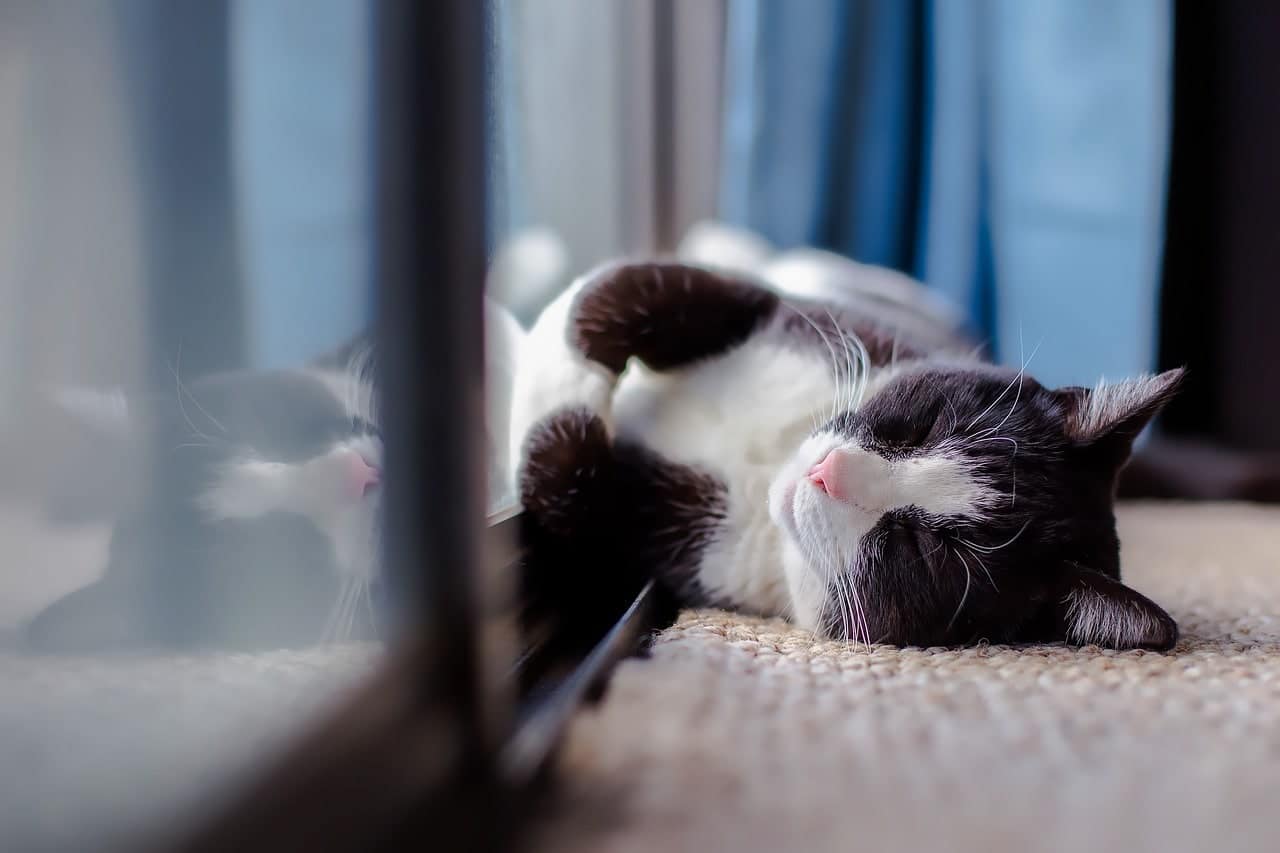
This will depend on the cause. Some causes of snoring in cats are harmless. If your cat only snores once in a while and is showing no other symptoms, then this may be just ‘positional’ snoring.
If your cat is overweight but otherwise healthy, the extra fat may be the culprit. Of course, this doesn’t mean you should ignore it. If your cat is snoring because they are overweight, then it’s likely that excess fat will be causing problems in other parts of the body too. Time for a diet!
If your kitty has always snored and is a brachycephalic breed (such as Persian, Himalayan, or Burmese, for example), then the shape of their face may be the cause. If your kitty also makes funny noises whilst breathing when they are awake, then you ought to seek veterinary advice. Some brachycephalic cats need medicine or surgery to help keep their passageways wide enough that they can breathe easily.
If your cat suddenly starts snoring, then you need to take them to your veterinarian to have it checked out. Some causes of snoring need veterinary treatment. Similarly, if you notice any of the following symptoms alongside snoring, then your cat needs veterinary attention:
- Sneezing may indicate an infection or an allergy
- Discharge from the eyes may indicate an infection
- Wheezing could be due to asthma or a blockage
- Coughing could be caused by asthma
- Drooling may indicate a blockage or an infection
- Pawing at their face or mouth, which could be due to a blockage or discomfort
- Lethargy (sleepiness) or change in appetite could be due to any illness or discomfort
- Open mouth breathing (panting), extended neck, or fast breathing should be treated as an emergency. Take your cat to your nearest veterinary clinic straight away.
What Can I Do About My Cat Snoring?
Again, this will depend on the cause. If your cat has always snored and is otherwise well or only snores occasionally, then often, you don’t need to do anything. However, a veterinary check-up is advisable so that you can be sure that nothing is amiss.
If your cat is overweight, putting them on a diet should help. If your cat is brachycephalic, they may need treatment to address the shape of their nose and/or soft palate.
If your cat has an infection, your veterinarian may prescribe antibiotics, medicine to clear mucus, or medicine to help open the airways. Treatment will depend on whether the infection is caused by bacteria or a virus.
If your cat is diagnosed as asthmatic, they may need medicine through a device, much like a human inhaler, or medicine by mouth. Allergies should be investigated by your veterinarian. If your cat is found to have an obstruction, foreign bodies can be removed. Any masses would need to be investigated.
You can also consult a vet online if you need quick and easy access to an expert’s opinion.
If you need to speak with a vet but can't get to one, head over to PangoVet. It's an online service where you can talk to a vet online and get the advice you need for your pet — all at an affordable price!


Summing up
Often, snoring in cats is nothing to be concerned about, especially if your cat has always snored and is otherwise healthy with no other signs. Or if your cat snores every now and then but is otherwise fine.
However, there are some causes of snoring in cats that are more serious. If your feline friend starts snoring suddenly and has other symptoms, you should schedule an appointment with your veterinarian. Hopefully, it is nothing to worry about, but better to be safe than sorry! Even if your cat has always snored, it’s worth letting your veterinarian know at your next appointment, then they can decide whether or not they need to investigate.
Featured Image Credit: Pixabay
